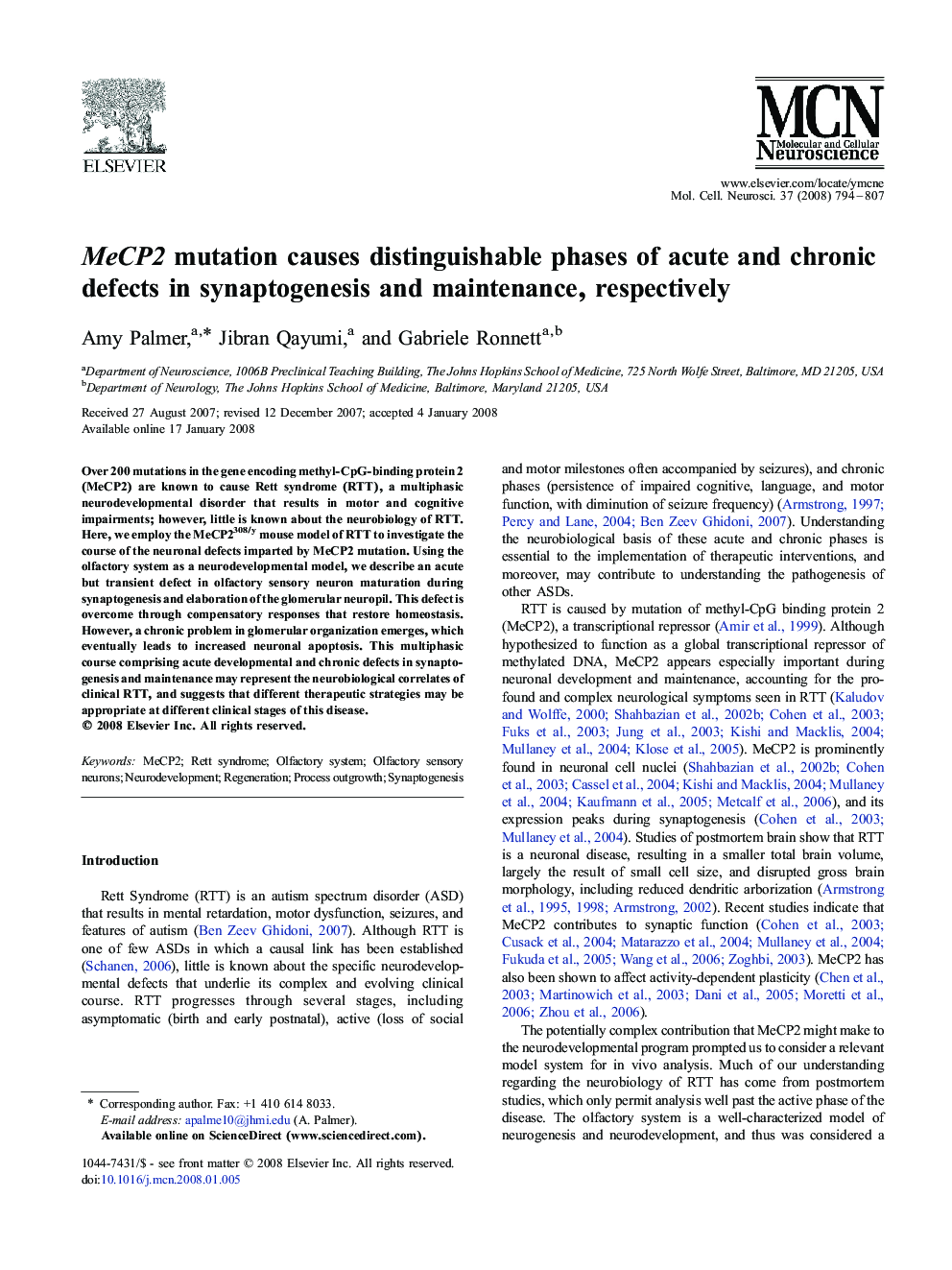| Article ID | Journal | Published Year | Pages | File Type |
|---|---|---|---|---|
| 2199131 | Molecular and Cellular Neuroscience | 2008 | 14 Pages |
Over 200 mutations in the gene encoding methyl-CpG-binding protein 2 (MeCP2) are known to cause Rett syndrome (RTT), a multiphasic neurodevelopmental disorder that results in motor and cognitive impairments; however, little is known about the neurobiology of RTT. Here, we employ the MeCP2308/y mouse model of RTT to investigate the course of the neuronal defects imparted by MeCP2 mutation. Using the olfactory system as a neurodevelopmental model, we describe an acute but transient defect in olfactory sensory neuron maturation during synaptogenesis and elaboration of the glomerular neuropil. This defect is overcome through compensatory responses that restore homeostasis. However, a chronic problem in glomerular organization emerges, which eventually leads to increased neuronal apoptosis. This multiphasic course comprising acute developmental and chronic defects in synaptogenesis and maintenance may represent the neurobiological correlates of clinical RTT, and suggests that different therapeutic strategies may be appropriate at different clinical stages of this disease.
